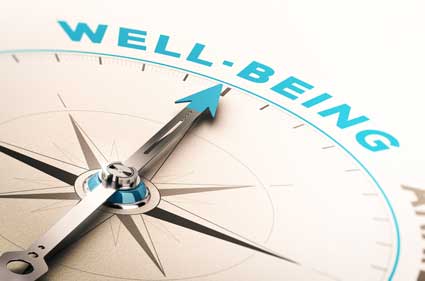In this article, you will be given a general overview of the 10 keys to optimal health and learn in depth about Keys 1 through 5.
When embarking on a healing journey, it is important to understand what the road ahead looks like and prepare, as much as possible, to achieve the best results. In this article, we will begin with the key of "acknowledgment" and end with "accountability."
Section 1. Keys to Wellness Overview
While we may wish the road to improved health was a straight and easy path, this is very seldom the case. Purging old habits and thought patterns takes practice, perseverance, and patience. As you progress along the road to regaining health, there are a few areas that you must master to see any progress at all, and other areas that are important if you really want to maximize your efforts. These are combined in the 10 keys of wellness listed below:
- Acknowledgment
- Acceptance
- Introspection
- Forgiveness
- Accountability
- Physical, Spiritual, and Mental Cleansing
- Patience and Self Love
- Setting Boundaries
- Outreach/Rebuilding Trust
- Upkeep
These 10 keys are vital to the success of any healing regimen, not just affirmations. In this article, you will learn about each area, in detail, and how to implement it in your life.
Section 2. Key #1 - Acknowledgmentt
It is often said that acknowledgment is half the battle -- and for good reason. While denial stands in the way of taking action to improve, acknowledgment kicks the door of possibility wide open.
It can often be hard to accurately see your own faults, and areas of opportunity. When we are stuck in a bad situation, or are exhibiting harmful behaviors, we are often the last person to really see what we have become. There may be a sense that something is not right, or physical symptoms that clearly indicate a bigger problem -- but what? Getting clear on the true state of your health and life is the first step to improving them.
In order to start the healing journey, you must first acknowledge there is a problem that requires your attention. This is by no means a sign of weakness. On the contrary, having the courage to clearly acknowledge your need for intervention shows immense courage and a commitment to being your best self. By acknowledging what is, you lay the foundation for upward trajectory in all areas.
The following exercise will help get you off to the right start.
- Find a quiet space where you can relax and think without interruption. Carry with you a pad and pen to capture anything that comes up.
- Close your eyes and relax your body, breathing deeply. Allow your mind to expand and think about any areas in your life in which you may be experiencing problems. Are you overweight, stressed out, or dealing with an abusive partner? Allow yourself to think about all areas of your life, without censoring your thoughts or trying to rationalize them.
- As you think about various areas of your life and your general health, focus on any areas that make you feel uneasy, fearful, sad, or frustrated. Once you clearly know what these are, open your eyes and jot them down on your pad -- again, without censoring yourself.
- Once you have everything written down, take a look at the list in its entirety. Does it accurately reflect the landscape of your life? Is there anything listed that is a surprise to you? This is a powerful exercise and it sometimes brings up things that were totally unexpected, but are affecting our lives and health in a negative way.
- As you read through the list, do not judge yourself. Simply acknowledge what has come up for you. Do not assign value or rebuke yourself if the list is as long as your arm. Simply acknowledge what is. Once you have done so, you are ready to move to the next phase -- acceptance.
Section 3. Key # 2 - Acceptance
As you look at your list, you may feel the instinct to recoil or disown some of what you have uncovered. You may rationalize that you don't really feel resentful of your sister -- you're just feeling so, because you are tired or overworked. Be careful of pulling back from what you have written, especially at this stage. It is important to clearly lay everything on the table and fully explore whether each issue is a factor in the health problems you are experiencing. To cross off items without proper exploration limits your potential for deep recovery.
Instead of running from what may seem uncomfortable, fully accept that this is where you are at this point in your life. Everyone has challenges and these don't make you any less of a brilliant, creative, and loving human being. The key is to fully accept those challenges, warts and all, and take accountability for moving forward to a better state of being.
As you review the items on the list, it may help to read them out loud. Even better, after each item, state the following:
I acknowledge that I have an issue or concern regarding __ and I love myself enough to fully accept what is and commit to healing in this area.
As you say this, you will most likely feel a lightness in your chest, as your heart and lungs release the stress of pretend perfectionism and perceived control. You are now ready to delve more deeply into these areas through introspection.
Once you have acknowledged and accepted the areas of your health and life that could use improvement, it is time to move deeper to introspection. In this phase, you will examine each item in the hopes of uncovering its root and gain clues into how you can resolve the matter.
In order to achieve this, you must be fully present and open to discovery on a deep soul level. Oftentimes. the things that are holding us back and making us ill are deeply embedded in our psyche and uprooting them can cause pain. This is totally fine. It is important to be open to the emotion in order to move through into the realm of healing.
To fully maximize this experience, find a quiet, safe place and ensure there are no interruptions. Make sure the space feels comfortable to you, perhaps adding pillows, incense, or a favorite and comforting possession. Low lighting is preferable, and candlelight may help ease your transition into a more meditative state. Some individuals find that a natural recording such as sounds of the forest or light rain helps them to relax. Find what is most comfortable for you.
Once your area is comfortable, sit and breathe deeply, expanding your belly on the breaths in, and contracting on contracting on the out breaths. Close your eyes and think about the first item on your list. Open your mind and heart, remove any barriers and allow yourself to fully feel whatever emotions, fears and thoughts come up. This can be a scary experience, but know that you are safe to explore and it will only aid you in the long run.
To provide an example:
You may have an acute fear of public speaking that causes crippling social anxiety and is holding you back from progressing in your career. You know that you have to get over this and you focus on this item as your first to do some deep introspection on. As you relax and meditate on this issue, ask yourself the following questions:
- When did I first notice this problem as an adult?
- Can I trace this issue back to any traumatic events in my adult life or childhood?
- How does this problem make me feel?
- How often does it come up?
- How is this limiting me in my life?
- Who if anyone, do I associate with this problem?
- What would I be able to accomplish if I could banish this issue?
After thinking deeply on these questions and being open to honest answers, write down the answers as they come to you. Do not try to make sense of, or organize, your writings. Just let your emotions and thoughts flow freely onto paper. If you have a number of issues, this may need to be done over several sessions and that is ok. The main goal is to get in touch with your inner self and tap into what may be causing your illness on an emotional and soul level.
For the example above, upon deep introspection the individual may recall a speech impediment from early childhood that made them feel extremely self conscious. In fact, when they were called on to speak in class, they were routinely laughed at and teased, as is often the case with children. Although they no longer have the problem as an adult, they had unknowingly retained the social anxiety the childhood experience provoked. Now that they are fully aware of what has been holding them back, they are better equipped to tackle the problem head on, and eliminate it.
Section 5. Key #4 - Forgiveness
This key may seem self explanatory, but it can be a bit more complex than one may think. Many illnesses, including physical ones like cancer, can stem from unresolved anger and sadness. These toxic feelings are trapped in the body and over time fester and become ulcers and tumors. Acknowledging and working to release these feelings, and the associated trauma, can play a large role in disease reversal and restoring mental and emotional harmony.
If you have been victimized, it may be hard to think about forgiving the transgressor without any retribution. You may want revenge, justice, or, at the very least, for the offender to acknowledge the pain they have caused and offer a sincere apology. Unfortunately, this is not always possible.
Sometimes the individual is mentally or emotionally disturbed and cannot perceive that they have harmed you. Others may be serial opportunists and don't care who they hurt in their quest for achievement or possessions. Still others may be acting out their own childhood or relationship trauma and be powerless to control the demons that haunt them. In all cases, it is important not to allow your health and happiness to be held hostage by someone like this. You cannot control what another person does. However, you can control whether you will allow someone else's issues to change the way you see yourself and move through life.
If you understand that all humans have their unique challenges, and that some are more problematic than others, it allows you to see human behavior through a different lens. Instead of becoming hurt and embittered by the seemingly negative behavior of others, you realize they are acting out a script that is an accumulation of all their life experiences up to that point -- both good and bad. When you think this way, it actually makes you feel compassion for the transgressor and wonder what must have occurred in their lives to make them act in this way. When you can come from a place of compassion, forgiveness becomes easier and you release your emotions from being controlled by someone outside of yourself.
This key to health flows naturally from forgiveness. In taking accountability, you accept responsibility for how you choose to feel and behave in the world. You understand that the only person you can control is yourself and you are determined to become the best person that you can be.
You also take responsibility for your health. You vow to educate yourself and make wise lifestyle and spiritual choices that support the person you want to be in the world. You prioritize what is important to you and unapologetically adhere to it. Do not be swayed by others. You know yourself best and what will support your health and peace of mind.
In your journal or notebook, write out those areas in which you are renewing your accountability. State specifically what you desire to see in your life, and the steps you will take to achieve it. This is a very empowering exercise and the sky is the limit. Tap into your innermost being and own what it is that you want in life.
Food for Thought
What are your thoughts on the first five Keys for Health? Does any particular key resonate with you? Is there one or more that seems difficult or scary? Why?
Conclusion





























